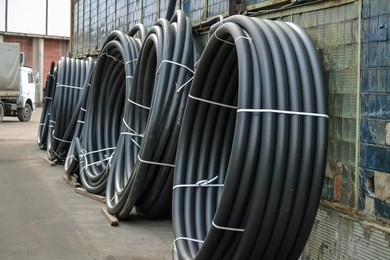Choosing a Hydraulic Hose
2023-02-24 14:14:55
Hydraulic hoses can be used in hydraulic systems to transport hydraulic fluid. They are flexible and long-lasting to transport pressurized hydraulic fluid between ports. These hoses are also helpful in reducing vibrations and making the process of piping and manufacturing equipment easier.
The inner tube of a hydraulichose is usually made from thermoplastic or synthetic rubber. The reinforcement layer of a hose is usually a wire braid, or textile yarn. Reinforcement is essential to ensure the durability of the hose. This is because it protects the inner tube from wear and tear.
It is important to ensure that your hose is rated for what pressure it will be working at. This will reduce the chance of a leak. The hose should also be stored correctly. It should be free of moisture and direct sunlight. The hose can become damaged if it is not stored properly.
A good hose can last for years. However, if you notice signs of deterioration, it is a good idea to have the hose replaced. Cracks, leaks, and ruptures are all signs. To check if the outer cover of the hose is in good condition, you can also inspect it.
When choosing a hydraulic hose, it is important to look at its maximum working pressure. It is usually measured in pounds per square inch. There are several types of hydraulic hoses, and they are made from different materials. Neoprene, for example, is a popular choice because of its resistance to abrasion.
There are many options available, so it can be difficult to choose the right hose. You also need to determine the chemical compatibility of the hose. Most hoses are made of petroleum-based oils and can be damaged by chemicals and pollutants. The type of fluid a hose is carrying can also affect its temperature. As a result, a hose's performance can be adversely affected by temperatures outside its rated range.
UV light and ozone can cause damage to hoses. If your hose is exposed to high temperatures, you may also want to consider a heat-resistant hose. Also, the hose's abrasion-resistant cover should be compatible with the operating environment.
The hose's burst temperature is another important factor to consider. A hose that fails to meet its maximum working pressure will fail much sooner than a hose of a higher rating. Higher pressures also provide better safety factors.
The materials and diameter of the hose also play a role in its working pressure. For harsh applications, heavy-duty hoses work well. They are made of heavy material and can withstand extreme pressure.
It can be difficult to choose the right hydraulichose. It is important to find the right hose for your needs. Whether you're working with synthetic oil or petroleum-based fluids, you should be able to find the hose that works best for you. Before purchasing a hose, measure the length, diameter, and interior dimensions. Once you've done so, you can purchase a hose that will last for a long time.